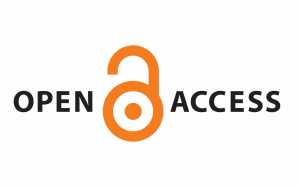It’s Day 2 of International Open Access Week! Today we are focusing on why Open Access is important, and how we support it at BU.

As highlighted in yesterday’s blog, open access publishing allows research to be disseminated quickly and widely, the research process to operate more efficiently, and increases the use and understanding of research by business, government, charities and the wider public.
Research shows that open access publications are likely to be more highly cited and disseminated than those published behind a paywall. Open access can increase research and researcher visibility, facilitate collaboration, and accelerate developments and innovation in the research field.
As well as the clear benefits open access brings, many funders, including UKRI (and any of its councils), Wellcome, and the NIHR, have open access policies which require that in-scope outputs produced from their grant-funded research are published open access.
Similarly, to be eligible for submission to the REF, journal articles and conference proceedings with an ISSN must be available open access. Until the REF2029 open access policy is confirmed, this means that for BU authors, these outputs must be uploaded to BURO (Bournemouth University Research Online) by depositing a copy of the accepted manuscript via BRIAN (Bournemouth Research Information and Networking) within three months of acceptance for publication.
How we support Open Access at BU.
There are two main routes of making research findings open access – Gold or Green.
Gold Open Access
The Gold open access route is where an Article Processing Charge (APC) is paid to the publisher to make the article available free of charge to readers immediately on publication. At BU, we support gold open access publishing via:
- Transformative agreements with publishers
BU is signed up to a number of transformative deals with major publishers including Elsevier, SAGE, Springer Nature, PLOS, Wiley and more. This means that BU authors can publish gold open access for free, or at a discounted rate, in thousands of journal titles which are covered under the deals, subject to eligibility.
More information on these agreements can be found on the Bournemouth University Library and Learning Support guide.
- A dedicated fund for UKRI grant holders.
BU is in receipt of a UKRI Open Access block grant, which can be used by UKRI-funded authors to cover APCs associated with publishing in fully open access journals and platforms that are not covered by our transformative deals. The cost of open access publishing in subscription or hybrid journals cannot be supported by the award in most cases.
- The BU Open Access Publication fund
Researchers can also apply to the centralised BU Open Access Fund for support to cover all, or part, of the costs of open access publishing in journals not covered by our transformative deals. Budget is limited and application for funding is extremely competitive. It is important that authors apply to the fund before submitting their article to fully open access journals.
Green Open Access
Also referred to as self-archiving, BU authors can publish green open access at no cost to them, by depositing the final, full-text, peer-reviewed version of their article (usually known as the author-accepted manuscript) in our institutional repository BURO. The article will be made freely available, either immediately upon publication or after an embargo period as stipulated by the journal publisher.
Want to know more?
Come to our Open Access drop-in session in FG19 tomorrow, Wednesday 23rd October, from 12:00-13:00. No sign-up is required, just come along with any questions you may have about our transformative deals, applying to the Open Access Publication Fund, or anything else open access related! Or you can email openaccess@bournemouth.ac.uk.
Join in the conversation around open access week on social media using #OAweek, or contact us at research@bournemouth.ac.uk if you’d like to share your thoughts via the research blog.
Find out more about Open Access at BU on the RKE Sharepoint site
 It’s INTERNATIONAL OPEN ACCESS WEEK!!
It’s INTERNATIONAL OPEN ACCESS WEEK!! Jisc, UK institutions and SAGE agree open access deal
Jisc, UK institutions and SAGE agree open access deal










 BU academic publishes in online newspaper in Nepal
BU academic publishes in online newspaper in Nepal Final day of the ESRC Festival of Social Science
Final day of the ESRC Festival of Social Science Using Art to enhance Research
Using Art to enhance Research Register now to attend the 17th Annual Postgraduate Research Conference – Wednesday 3 December 2025
Register now to attend the 17th Annual Postgraduate Research Conference – Wednesday 3 December 2025 Portrait Concert featuring BU academic at L’Espace du Son Festival 2025, Brussels
Portrait Concert featuring BU academic at L’Espace du Son Festival 2025, Brussels ECR Funding Open Call: Research Culture & Community Grant – Application Deadline Friday 12 December
ECR Funding Open Call: Research Culture & Community Grant – Application Deadline Friday 12 December MSCA Postdoctoral Fellowships 2025 Call
MSCA Postdoctoral Fellowships 2025 Call ERC Advanced Grant 2025 Webinar
ERC Advanced Grant 2025 Webinar Horizon Europe Work Programme 2025 Published
Horizon Europe Work Programme 2025 Published Horizon Europe 2025 Work Programme pre-Published
Horizon Europe 2025 Work Programme pre-Published Update on UKRO services
Update on UKRO services European research project exploring use of ‘virtual twins’ to better manage metabolic associated fatty liver disease
European research project exploring use of ‘virtual twins’ to better manage metabolic associated fatty liver disease